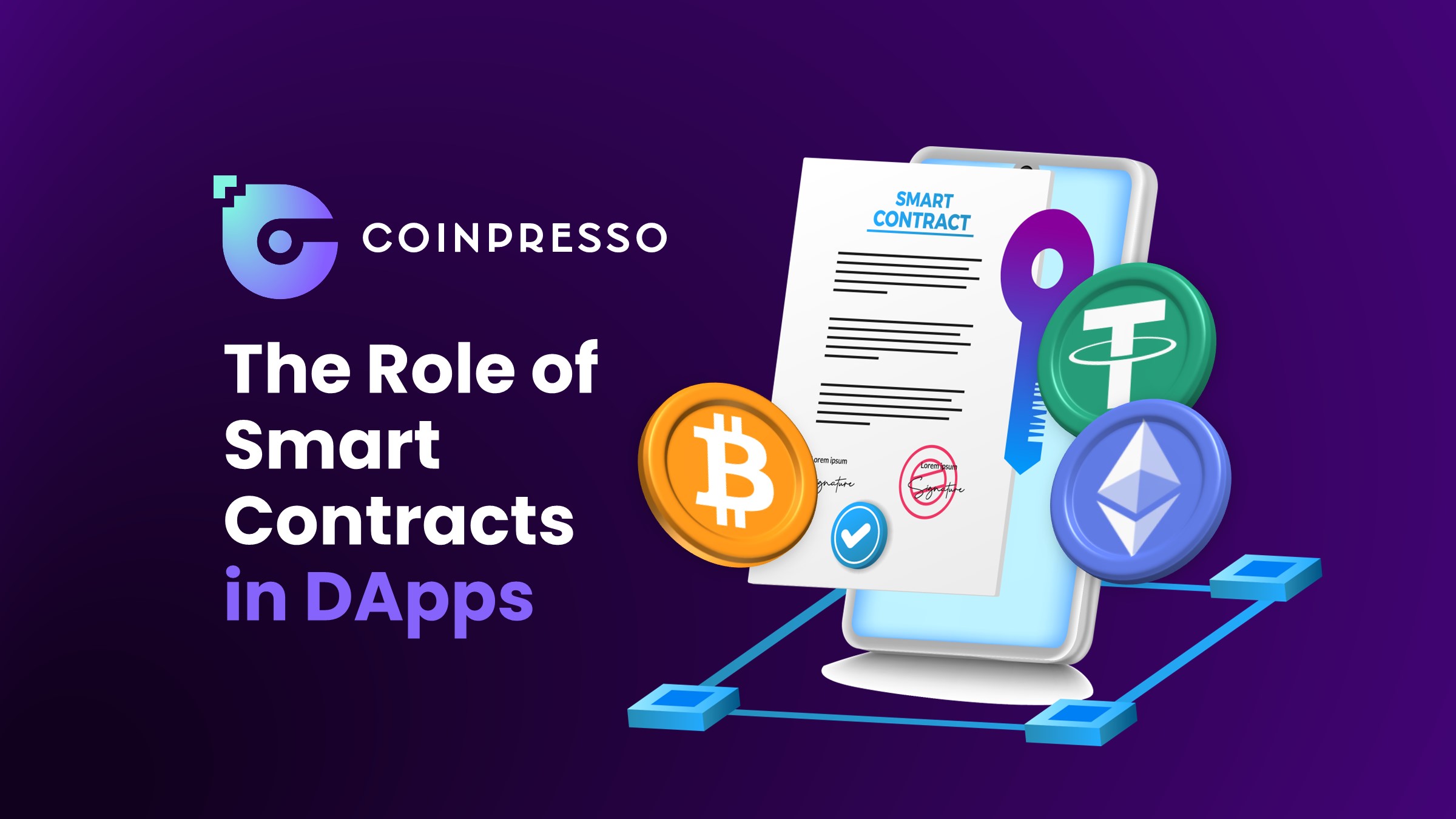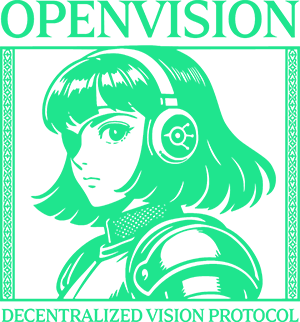
Have you ever used a decentralized exchange like UniSwap or played a blockchain game like Axie Infinity? If you answered ‘yes,’ you’ve benefited directly from the magic of smart contracts.
Unlike traditional applications controlled by central authorities, dApps operate on decentralized networks, offering benefits like increased autonomy and transparency. The backbone of this innovation is the smart contract – a self-executing piece of code residing on the blockchain.
Smart contracts enforce rules, automate processes, and remove the need for intermediaries, providing the foundation for dApps to function in a trustless and secure manner. Understanding smart contracts and their role in dApps is an important pillar of DeFi marketing and essential if you want to build a solid understanding of blockchain technology.
What are Smart Contracts?
Think of a smart contract as a digital agreement written in computer code. It resides on a public blockchain – a decentralized, tamper-proof ledger. The key feature of a smart contract is its self-executing nature. Once specific, pre-defined conditions are met, the contract automatically triggers the agreed-upon actions; this is at the heart of dApp development and deployment.
For example, a smart contract for a house sale could automatically transfer ownership of the property once the agreed-upon payment is received. It eliminates the need for intermediaries like lawyers or escrow services, streamlining the process and reducing costs.
Smart contracts are fundamentally programs following an "if/when…then…" logic:
- If/When: A specific event occurs (e.g., a payment is sent, a deadline is met).
- Then: The pre-programmed actions are executed (e.g., transfer ownership, release funds).
This automation and immutability on the blockchain offer a new level of trust and efficiency for transactions and interactions within the digital world.
Smart Contracts: Powering DEXs, DeFi Protocols, and Much More
Smart contracts serve as the building blocks of decentralized applications (dApps). They enable the core functionality that distinguishes dApps from traditional apps operated by central entities. Here's how smart contracts drive the key features of dApps:
- Decentralized Control: Smart contracts enforce the rules governing the dApp. No single individual or organization has the power to modify the contract's terms or alter its execution, promoting fairness and autonomy.
- Transparent Execution: All smart contract activity is recorded on the blockchain, providing an auditable trail of transactions and interactions. This fosters transparency and accountability within the dApp ecosystem.
- Complex Workflow Automation: Smart contracts can facilitate intricate processes involving multiple steps and conditional logic. This unlocks a vast array of potential use cases for dApps, from financial services to supply chain management and gaming.
- Programmable Incentives: Smart contracts can be designed to include incentives that encourage desired behaviors within the dApp, fostering community participation and rewarding contributions.
Smart contracts essentially transform dApps into self-governing systems with secure, automated, and transparent operations, offering an alternative to the centralized model of conventional applications.
Smart Contracts in DeFi
Decentralized finance (DeFi) is one of the most transformative applications of smart contract technology. DeFi aims to rebuild traditional financial services on decentralized blockchain networks, offering greater accessibility, transparency, and efficiency. Smart contracts play an essential role in enabling DeFi's core functionalities:
- Decentralized Exchanges (DEXs): Smart contracts power decentralized exchanges, allowing users to trade cryptocurrencies directly with each other without a centralized intermediary. They automate order matching, manage liquidity pools, and ensure the settlement of trades, enhancing financial freedom and control.
- Lending and Borrowing Protocols: Smart contracts enable peer-to-peer lending and borrowing. They facilitate depositing collateral, manage loan terms, calculate interest rates, and automate liquidations if necessary, creating a trustless, open lending ecosystem that makes DeFi staking platform development possible.
- Yield Farming Platforms: Complex smart contract systems underpin yield farming, where users can earn interest by providing liquidity to DeFi protocols. These contracts manage reward distribution, incentivize liquidity provision, and often incorporate sophisticated strategies to optimize yields.
DeFi's rapid growth has proven the power of smart contracts to disrupt traditional finance, offering innovative solutions that were previously impossible.
This is the basic process of how smart contracts are used in DeFi and other dApps to make loans and transfer assets.
Advantages and Limitations of Smart Contracts in DApps
Smart contracts offer a compelling foundation for the innovation and potential of dApps. Yet, it's essential to acknowledge both their transformative capabilities and the limitations developers must consider:
Advantages:
- Enhanced Security: Smart contracts reduce reliance on intermediaries, minimizing the risk of fraud or censorship that might exist in centralized systems. Their immutable nature on the blockchain increases transaction security and protects agreements from tampering.
- Transparency and Auditability: All smart contract actions are recorded on a public ledger. This creates a verifiable trail of activity, fostering accountability and reducing the potential for disputes.
- Efficiency and Cost Savings: Automation enabled by smart contracts eliminates manual processes and the associated costs for things like legal services or escrow fees, making transactions and interactions within dApps more efficient.
Limitations:
- Vulnerability to Coding Errors: Smart contracts are only as secure as their code. Even a minor bug could have significant unintended consequences, potentially leading to loss of funds or system malfunctions.
- Scalability Challenges: Certain blockchains can face limitations on the number of transactions they can process per second. Complex smart contracts, especially for popular dApps, can face congestion issues impacting user experience.
- Limited Interoperability: Smart contracts often reside within their specific blockchains. Cross-chain communication and value transfer between different dApp ecosystems is still developing, with projects like Polkadot and Cosmos leading the way.
The ongoing development of smart contract technology is focused on overcoming these limitations, with advancements in security tools, programming languages, and scalability solutions set to make smart contracts even more robust and versatile.
Final Thoughts on Smart Contracts and DApps
Smart contracts represent a crucial building block for the world of decentralized applications. Their ability to enforce agreements, automate processes, and operate in a trustless manner has fueled innovation across sectors, particularly within DeFi. As smart contract technology advances, its potential use cases and transformative capabilities will likely continue to expand.
The ongoing development of increasingly sophisticated smart contracts means the dApp landscape is constantly evolving. If you're exploring dApp development or seeking to integrate DeFi solutions, working with experienced professionals can ensure your project leverages this technology effectively. The Coinpresso crypto marketing team is here to guide you on this exciting journey. Contact us today.
































